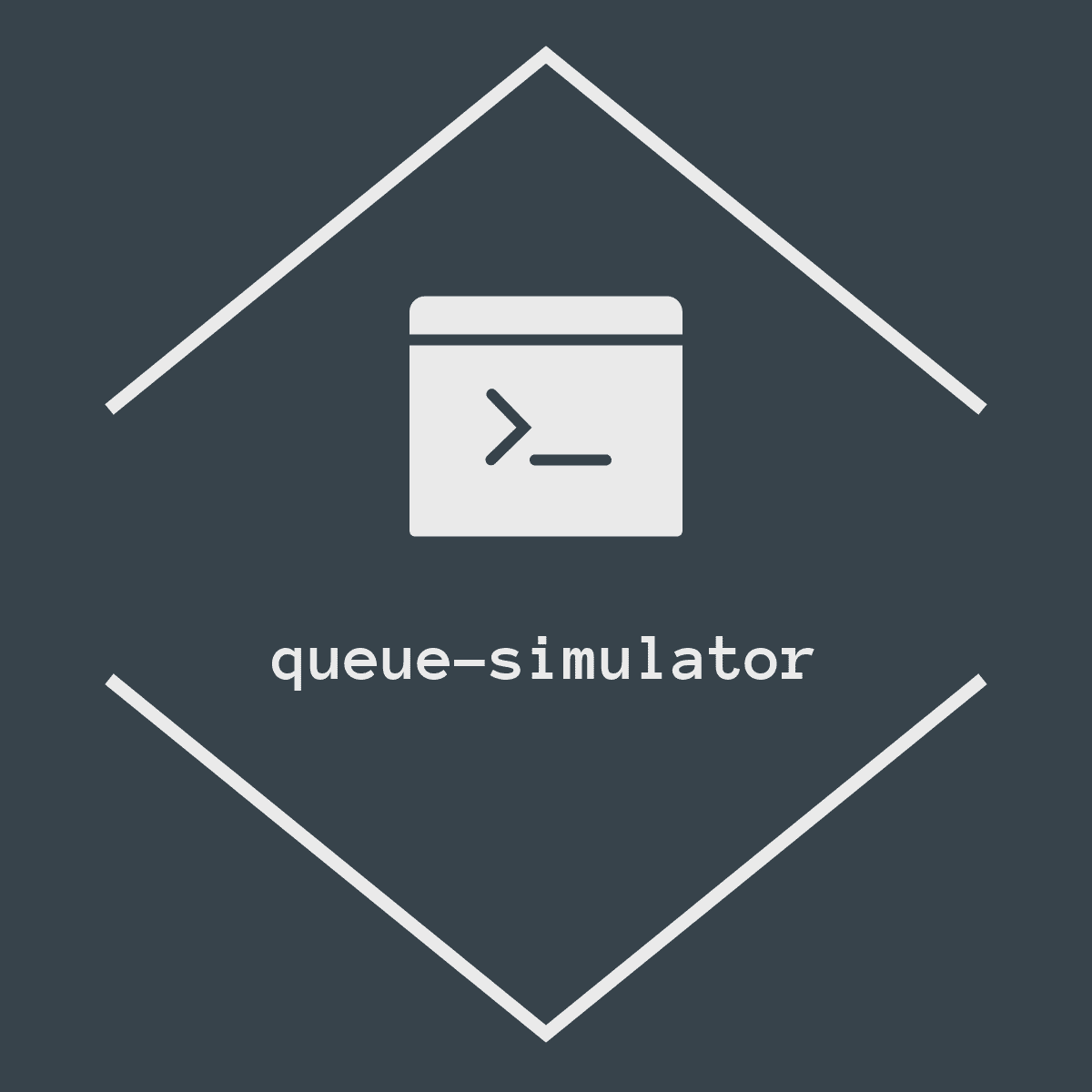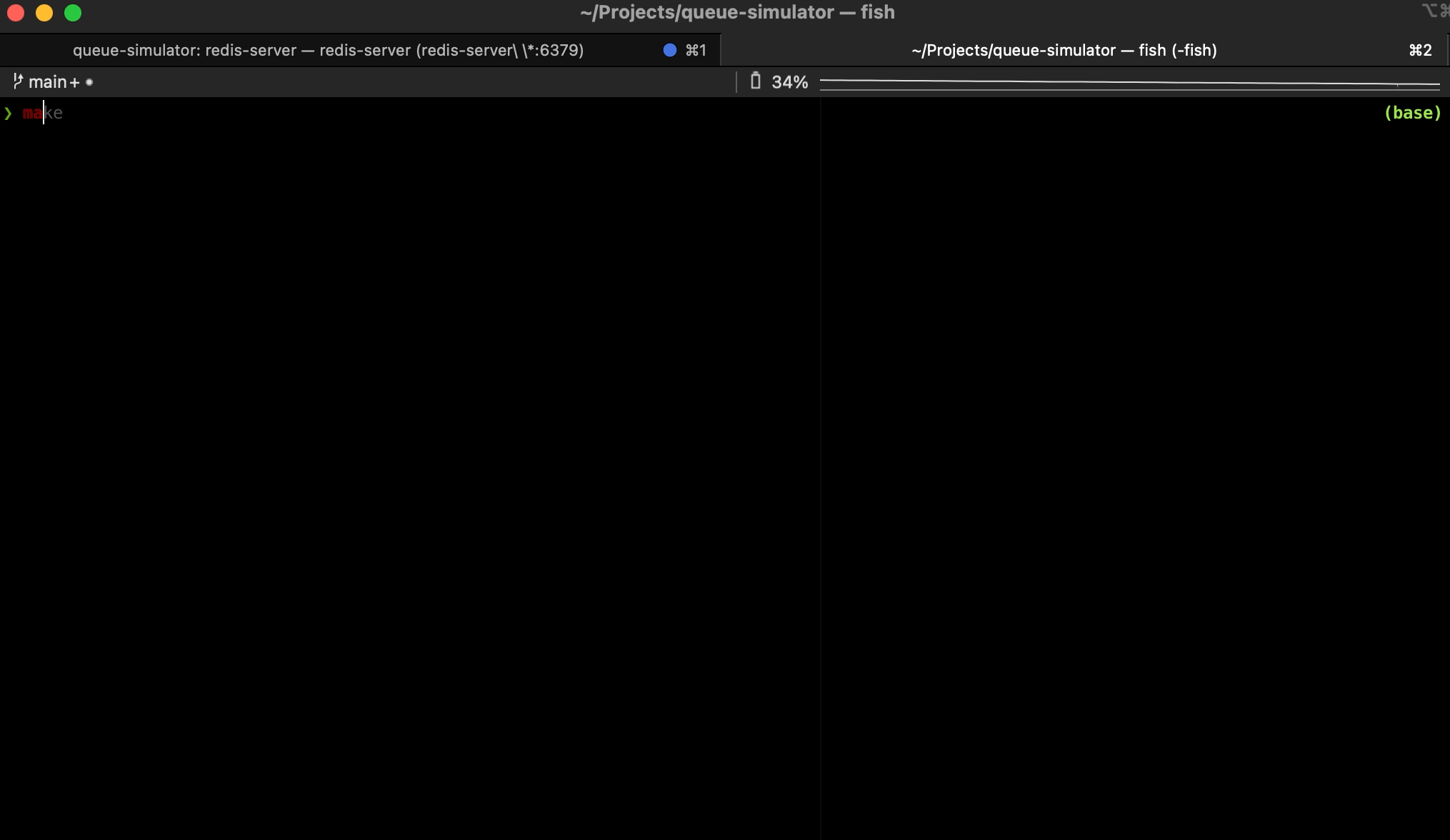Simulator built at Shopify originally purposed to prototype different Checkout Queue algorithms.
Open-sourced at similar low-fidelity to its prototypical origins but readily-actionable for improved usability.
First, install project Go dependencies to your local environment:
go mod downloadIf you plan to run with lua-driven queues in Redis (ie. queue_type = "lua_driven_bins_queue" in config.go), you'll need to install Redis and start a server in the background.
The above step is not necessary for queue types other than lua_driven_bins_queue.
For dashboard statistics, this project hopes to eventually leverage dockerized Prometheus and Grafana.
However, for the moment, its statistics are built around Datadog so you'll need a Datadog API Key.
Once you have one ready, create a .env file with the following:
DD_API_KEY=XXXX
DD_DOGSTATSD_NON_LOCAL_TRAFFIC=true
and then use Docker to kickoff the Datadog agent:
docker-compose up
makeFor now, project usage is primarily driven by a Makefile with the following commands:
| Make Task | Description |
|---|---|
default |
Compile the project binary executable & run it |
run |
Run the last compiled project binary executable |
clean |
Remove the last compiled project binary executable |
test |
Run tests |
Running a simulation is thus as simple as executing make (build & execute) or make run (execute last build).
Experiment configuration (e.g. algorithm used, client behaviour, etc.) can be modified under cmd/goqueuesim/config.go. Available parameters are documented in that file.
Additionally, client behaviour can be specified via JSON under config/simulation/client_distributions/.
A simple example config with 3 different client types might look like:
{
"representation_percent": 0.20,
"client_type": "routinely_polling_client",
"humanized_label": "fast_poller",
"obeys_server_poll_after": false,
"max_initial_delay_ms": 20000,
"max_network_jitter_ms": 100,
"custom_int_properties": {
"dflt_poll_interval_seconds": 1
}
},
{
"representation_percent": 0.60,
"client_type": "routinely_polling_client",
"humanized_label": "strictly_obedient_poller",
"obeys_server_poll_after": true,
"max_initial_delay_ms": 20000,
"max_network_jitter_ms": 450
},
{
"representation_percent": 0.20,
"client_type": "fully_disappearing_client",
"humanized_label": "immediately_exiting_client",
"obeys_server_poll_after": false,
"max_initial_delay_ms": 20000,
"max_network_jitter_ms": 1,
"custom_int_properties": {
"polls_before_disappearing": 1
}
}See internal/client/impl/ for already-implemented example client_types.
The main notable feature/usability gaps that have yet to be implemented are:
- Migrating our experiment statistics to leverage dockerized Prometheus and Grafana rather than Datadog
- Simplifying our build dependencies (incl. Redis) to a single containerized Docker image
Please refer to the Contributing document if you are interested in contributing to goqueuesim!

